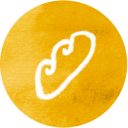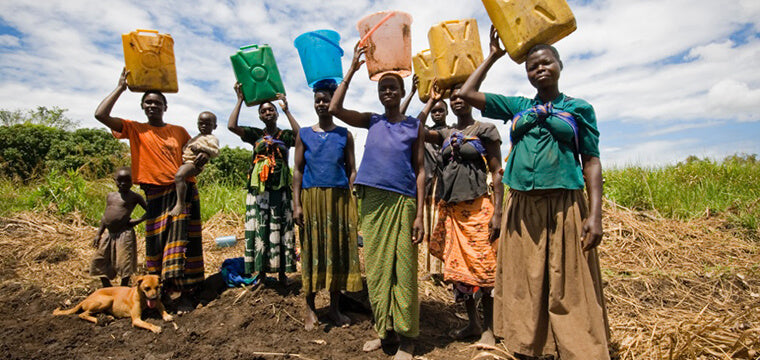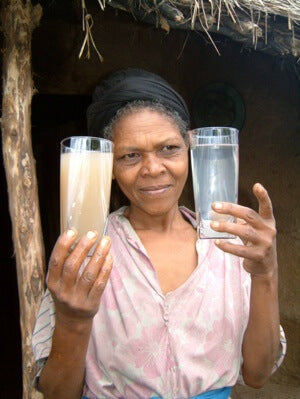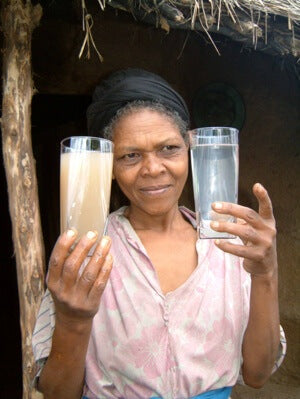Day 18
Two months of drinking water supply for a family in Uganda
 Drinking water shortage
Drinking water shortage


and what you can do about it with simple means

need
Illness caused by contaminated drinking water
activity
Bio-sand water filters are installed
Measurable performance
Number of families that can be supplied with filtered drinking water
Result
Reduction in water pollution-related diseases
Systemically relevant impact
Comprehensive drinking water supply through the bio-sand water filter and containment of diseases
background


The good deed
AboutUganda
Kampala
Capital city
35,357,000 (2013)
Population
589 US$
Gross domestic product
per capita per year
161
Human Development Index
(Human Development Index)



